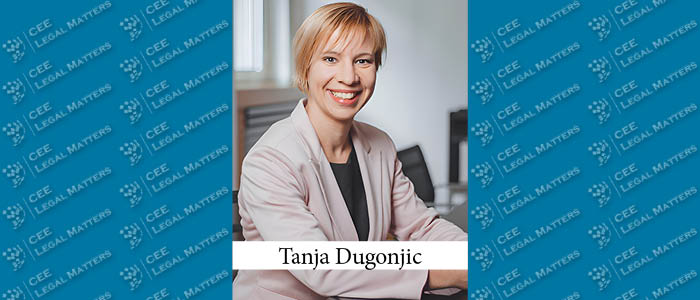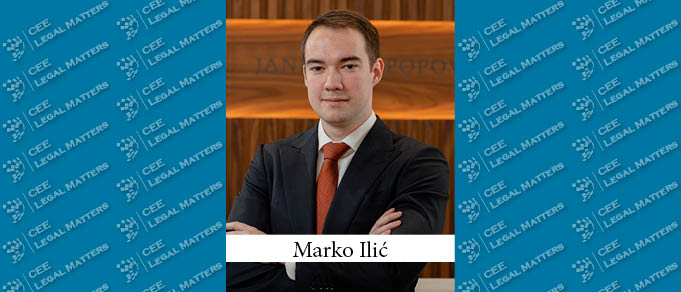The new Law on Electronic Communications, published on April 29, 2023, in the Official Gazette of the Republic of Serbia no. 35/23, went into force on May 7, 2023. With the entry into force of the new law, the previous Law on Electronic Communications ceases to be valid (“Official Gazette of the Republic of Serbia”, nos. 44/2010, 60/2013, 62/2014 and 95/2018) except for certain provisions related to the secrecy of electronic communications, legal interception, and retention of data, as well as other specific provisions that will be valid until the adoption of by-laws prescribed by the new Law on Electronic Communications.
Green Transition: How close is Western Balkans to the EU Emissions Trading System?
As we previously reported, the pivotal Energy Community Ministerial Meeting held in Tepelenë, Albania, in June signaled potential developments in green energy and decarbonisation in the Western Balkans (WB).
Schoenherr, White & Case, and Karanovic Advise on E& Acquisition of PPF Telecom Bulgarian, Hungarian, Serbian, and Slovakian Assets
Schoenherr, working with Sullivan & Cromwell, has advised the Emirates Telecommunications Group Company – operating as E& – on its acquisition of a 50%-plus-one-share stake in PPF Telecom Group's assets in Bulgaria, Hungary, Serbia, and Slovakia. White & Case and Karanovic & Partners advised the PPF Group on the up to EUR 2.5 billion sale and the setup of a joint venture with E&.
New Law on Safety and Health at Work
On April 28, 2023, symbolically on the International Day for Safety and Health at Work, the National Assembly of the Republic of Serbia adopted the New Law on Safety and Health at Work (“Official Gazette of the RS”, No. 35/2023 – hereinafter: the New Law), which entered into force on May 7, 2023. The New Law brings a large number of novelties in the field of safety and health at work (hereinafter: OSH), and its main goal is the complete alignment of OSH regulation with European standards, and consequently, a significant reduction in the number of injuries at work and occupational diseases of employees.
Karanovic & Partners Advises DS Smith on Bosis Acquisition
Karanovic & Partners has advised DS Smith on its acquisition of Serbian offset cardboard packaging and blister packaging company Bosis.
EU-U.S. Data Privacy Framework: A New Adequacy Decision for Transatlantic Data Flows
On July 10, 2023, the European Commission (“Commission“) adopted its adequacy decision for the EU-U.S. Data Privacy Framework (“DPF”). The decision concludes that the United States (“US”) ensures an adequate level of data protection – comparable to that of the European Union (“EU“).
Aleksandra Hercl Becomes Remote Head of Legal at Mindful Finance and Co-founder of Tesla Faktoring
Nasa AIK Banka Head of Legal Aleksandra Hercl has joined Mindful Finance as Remote Head of Legal and as the Co-founder of Tesla Faktoring.
New Amendments to Construction Law: Enhancing Development and Energy Efficiency
The Serbian parliament has adopted new amendments to the Law on Planning and Construction (“Construction Law”), introducing a series of novelties expected to significantly impact the construction industry, urban planning, and energy efficiency.
NKO Advises CTP on Repeat Business in Kac Industrial Zone
NKO Partners has advised CTP on its fifth acquisition of land in and around Novi Sad – and its second in the Kac industrial zone – intended for the further development of the company's industrial property.
Misdemeanour Liability for Incorrect Tariffing of Imported Goods (Part I)
Amendments and supplements to the Customs Law, enacted in December 2022, amended the misdemeanour provisions for violations of this law. The amendments introduce greater certainty regarding the misdemeanour liability of importers and customs representatives for submitting customs declarations and accompanying documents with the goal of legitimate conducting of customs procedures. In this article we present our interpretation of the respective amendments.
Update of Regulations Relating to Foreign Nationals
Two laws concerning the work and residence of foreign nationals in Serbia have been updated this July. The Serbian Parliament has adopted the amendments to the Law on Foreign Nationals (“LFN”) and to the Foreign Nationals Employment Act (“FNEA”). Among the main reasons for these amendments are harmonization with EU regulations and standards, as well as the current trend of increased presence of foreign workforce in Serbia, the need for which is expected to continue to be on the rise.
AI in Agriculture: Navigating Liability and Regulation
The world’s population is on the rise, increasing the demand for food. The United Nations estimates that the world population will reach 9 billion people in approximately 15 years; by 2050, it is expected to reach 10 billion people. This means there will be an additional two billion people to feed, necessitating farming and food production to become more efficient.
Zivkovic Samardzic Advises Samsic Holding on Buying Out Samsic STM Minority Shareholders
Zivkovic Samardzic has advised Slovenia's Samsic Holding on its acquisition of the remaining 45% stake in Belgrade-based facility management, construction, and installation services provider Samsic STM from the two founding shareholders. Sole practitioner Jelena Rasovic advised the minority shareholders.
US Supreme Court Justices Unite Against Parodying Trademarks
At the beginning of June 2023, the Supreme Court of the United States ruled in favor of the famous Jack Daniel’s distillery in a trademark infringement lawsuit after a squeaky toy for dogs appeared on the market, which resembles a bottle of the famous whiskey Jack Daniel’s Old No. 7 Black Label Tennessee Whiskey in the context of shape of the bottle and other elements (trade dress).
Karanovic & Partners Advises OTP Group on Acquisition of Ilirika Fund Management Company
Karanovic & Partners has advised the OTP Group on its acquisition of the Ilirika Fund Management Company in Serbia.
From Collective Rights to Individual Justice: Class Action in the USA and Its Prospects in Serbia
On July 4, the United States celebrated Independence Day, which reminded us of the Declaration of Independence from 1776 that marked the establishment of the United States. This prompted us to reflect on the numerous distinctive legal achievements of the United States, inspiring us to explore the phenomenon of class action. Originating from across the Atlantic, this legal institution has found its place in continental European jurisdictions, sparking discussions within the professional community about its potential incorporation into Serbia’s legal framework.
A Lifeline for Data Transfers: EU-US Data Privacy Framework Is Back On
In the long-awaited aftermath of the havoc caused by the CJEU’s decision (adopted in 2020 in the famous Schrems II case) to invalidate the previously existing EU-US Privacy Shield Framework, the European Commission adopted the adequacy decision promoting the new EU-US Data Privacy Framework (the “Framework”) on 10 July 2023.
Commercial Offences – Proceeding, Sanctions and Statute of Limitations
Chapter 1 - A commercial offence – a brief review of an unjustifiably neglected step between a misdemeanour and a criminal offence.




















